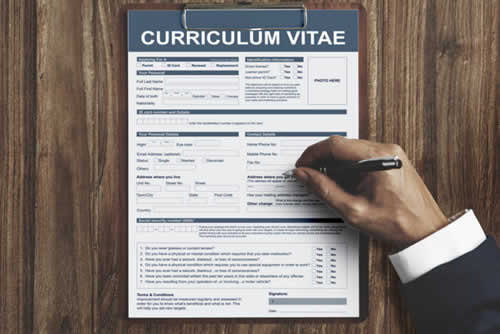Landing your first job can feel like unlocking a door without the key. Especially when every opportunity seems to require experience you haven’t yet had the chance to gain. It’s a frustrating cycle that many entry-level job seekers know too well.
Yet, you have more to offer than you may realize. A resume without formal job experience can still be quite an effective tool with the right strategy. It’s all in the presentation: focusing on the strengths, transferable skills, and eagerness to grow and contribute.

This guide breaks up the process into five easy-to-follow, informative, and research-proven steps to create a great resume from scratch.
Why Resume Writing Services Are Worth It
It’s scary to write your first resume. Imagine staring at a blank page with nothing to show regarding job titles or professional accomplishments. How do you impress top recruiters? This is where online professional resume services enter the scene. They take the burden off your back by helping you emphasize the right attributes in a polished, recruiter-ready presentation.
Online help like this in the form of
resume writing services can be your savior! Even more, professional writers know how to design individualized resumes that sneak past Applicant Tracking Systems (ATS) without bucking industry conventions and yet bear the mark of your rugged individualism.
This support is invaluable for students, recent graduates, and career changers. When starting from ground zero on your resume or transitioning into a new field, getting a professionally written resume can make a difference in landing interviews.

Tips on Writing Resumes Without Experience
The key is knowing how to position those strengths to grab a recruiter’s attention. Below are five practical, easy-to-follow tips to help you craft a resume that stands out—even if you’re starting from scratch.
1. Lead With a Powerful Summary Statement
At an entry level,
the summary statement sets up an impressive resume. For many recruiters, that’s all they will read, so it’s your opportunity to wow them right off the bat without even looking through your (or lack thereof) experience.
Think of this as your very own elevator pitch. Quickly, in a few lines, it needs to illuminate your motivation, your most applicable soft skills, and your career goals.

If you'd like to learn more about what we provide, why not take a look at how we can help?
Boost your skills with our market-leading online courses at super-low prices.
Two examples are:
- “Motivated and detail-oriented recent graduate with strong communication and organizational skills, eager to contribute to a fast-paced office environment. Known for taking initiative and thriving in team settings. Looking to grow within a company that values dedication and a willingness to learn.”
- “Passionate about digital marketing and content creation, with hands-on experience from academic projects and personal blogging. Quick learner with a strong work ethic and a keen eye for detail, seeking an opportunity to apply creative thinking in a dynamic marketing team.”
Don’t underestimate this section. It can set the tone for your entire resume and help you stand out from the start.
2. Emphasize Transferable Skills
Even if you haven’t had a job yet doesn’t mean you don’t have the skills employers want. Transferable skills, communication, teamwork, leadership, time management, and problem-solving are learned through school projects, volunteering, extracurricular activities, and even hobbies.
Use bullet points with active language listing accurate contributions about that skill on your resume. For example, instead of:
“Good at teamwork,” write
“Collaborated with peers to develop a group presentation for a class of 30 students.”

Wherever possible, accompany your claims with numbers or results for the best resume. Quantifying accomplishments, such as spearheading a club, coordinating an event, or budgeting for a student project, gives teeth to your claims and demonstrates initiative.
3. Relevant Coursework, Certifications, and Online Learning
With no experience in employment, learning how to build a resume falls onto knowing that your
education is your greatest asset. Including pertinent coursework, certifications, and online classes demonstrates that you are actively acquiring knowledge relevant to the position.
List courses that are related to the position applied for—for example, “Principles of Marketing,” “Introduction to Data Analytics,” or “Professional Communication.” If you’ve received certifications through Coursera, LinkedIn Learning, or Google, include them in their separate section titled “Certifications.”
This shows your initiative, ability to learn independently, and genuine interest in the field, things that hiring managers typically value in entry-level candidates.

4. Tailor Each Resume to the Job Description
Among the biggest missteps of first-time applicants is believing that the same resume can be sent to every job. A tailored resume aligning with the job description will signal to the employer that you took the time to understand it.
Scan the job posting for keywords, notably in the responsibilities and qualifications sections, and integrate them seamlessly into your resume, especially in the summary and skills sections. For example, if the listing states “require strong attention to detail,” reiterate this phrasing when detailing your coursework or projects. For good resume examples, the executive resume writing services provide you with everything you need to know. This includes learning the proper resume format and resorting to professional help.
5. Keep It Clean and Reader-Friendly
Sometimes, even the finest content doesn’t get the attention because of its lousy readability. When hiring managers scan dozens daily, a neatly formatted resume makes a strong first impression.
Keep things simple with clear headings, a consistently formatted font, and lots of white space for a clean look. Try to keep it uncluttered; one page is optimal. Use bullet points to break information down, but always be clear and direct with your language.

Keep it brief but informative. Do not write too much for something the reader doesn’t need or care about. A clear, concise resume is a sign to the employer that you understand their time—and makes it easier for them to see your potential.
Conclusion
Building a good resume without experience may seem daunting, but it is possible and usually much easier than you would think. Putting the focus clearly on your positives, an articulate summary, pertinent skills, and sound design can make the employer feel that you are worthwhile having and investing in.
Finally, remember to proofread your resume. Incorrect spelling and poor grammar would make the worst impression, even if the content is strong. Ask a friend to review it or use an online professional editing tool before you hit “send.”






























